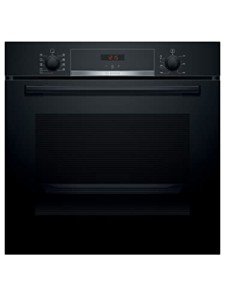It's The One Bulit-In Ovens Trick Every Person Should Learn
The Ultimate Guide to Built-In Ovens: Enhancing Your Culinary Experience
Built-in ovens have ended up being a staple in contemporary cooking areas, dealing with the evolving requirements of both amateur and expert chefs. They are designed to seamlessly integrate with kitchen cabinetry, using aesthetic appeal while maximizing area and functionality in the kitchen. This comprehensive guide checks out the advantages, types, features, and upkeep of built-in ovens, offering readers with the required understanding to make an informed purchase.
What is a Built-In Oven?
A built-in oven is an oven that is installed straight into the kitchen cabinetry for a streamlined appearance. Unlike freestanding models, which can be moved and repositioned, built-in ovens are generally embedded within the kitchen design, making them a long-term fixture. These ovens come in various designs and sizes, enabling homeowners to tailor their kitchen area to fit their private design and cooking needs.
Advantages of Built-In Ovens
1. Visual appeals
Built-in ovens offer a sophisticated finish to kitchen styles. Their flush setup lines up with cabinetry, producing a seamless appearance that improves the general look of the kitchen.
2. Area Efficiency
Designed to save area, built-in ovens can be placed at eye level, enabling chefs to monitor their dishes without bending down. They can likewise be stacked with other appliances, providing extra space for food preparation.
3. Advanced Features
Lots of built-in ovens come equipped with advanced innovation, such as:
- Smart manages permitting remote operation via mobile apps
- Multi-function cooking choices (e.g., convection, steam, or air frying)
- Self-cleaning capabilities for simple and easy maintenance
- Accurate temperature controls for consistent baking results
4. Increased Property Value
Modern built-in ovens can enhance the value of a home. Prospective buyers often value the streamlined appearance and integrated features of a built-in design, making it an appealing selling point.
Kinds Of Built-In Ovens
Built-in ovens come in various types that accommodate various cooking techniques and choices. The main classifications consist of:
1. Wall Ovens
Wall ovens are installed on walls, maximizing flooring area and allowing ease of use. They can be single or double ovens, with double ovens offering more cooking capacity for large meals.
2. Microwave Ovens
Built-in microwave are developed to mix effortlessly with cabinets. They can save counter space and are often integrated with wall ovens for a total kitchen setup.
3. Steam Ovens
Steam ovens cook food utilizing steam, keeping more nutrients and flavors. They are ideal for health-conscious cooks looking to prepare healthy meals while optimizing taste.
4. Mix Ovens
Combination ovens incorporate microwave innovation with standard oven functions, enabling flexible cooking choices. They make it possible for users to bake, roast, and even steam food, giving chefs more versatility.
Table: Comparison of Built-In Ovens
Function
Wall Oven
Microwave Oven
Steam Oven
Mix Oven
Cooking Method
Baking/roasting
Heating/cooking
Steaming
Baking/steaming
Installation Style
Wall-mounted
Built-in
Wall-mounted
Built-in
Cooking Capacity
Varies (single/double)
Limited
Moderate
Moderate
Price Range
Higher
Moderate
Moderate
Higher
Energy Efficiency
High
Moderate
High
Moderate
Important Features to Look for in Built-In Ovens
When picking a built-in oven, numerous functions ought to be taken into factor to consider to guarantee a functional cooking experience:
Size: Measure your area before acquiring to ensure the oven fits completely within your kitchen cabinetry.
Capability: Consider the oven capability based on your cooking routines and family size.
Control Options: Look for easy to use controls, digital display screens, and clever technology for benefit.
Cleaning Mechanism: Opt for self-cleaning alternatives or easy-to-clean surface areas to simplify upkeep.
Security Features: Check for features such as child locks, automatic shut-off, and cool-touch doors for included security.
Upkeep Tips for Built-In Ovens
To lengthen the life of a built-in oven and guarantee optimum performance, routine upkeep is essential. Here are some ideas for keeping your oven in leading condition:
Clean Regularly: Wipe down the exterior and interior after each usage to avoid grime accumulation. Use Link Home Page -cleaning function regularly if offered.
Check Seals: Inspect the oven door seals regularly for wear and tear to preserve effectiveness and prevent heat loss.
Usage Correct Utensils: Avoid utilizing coarse scrubbers or extreme chemicals that might damage the oven's surfaces.
Adjust Temperature: Occasionally check and calibrate the oven temperature to ensure consistent cooking efficiency.
FAQs About Built-In Ovens
1. How do I select the right size built-in oven?Procedure the available space in your cabinetry and think about the cooking capability you need based on your cooking practices.
2. Are built-in ovens more pricey than freestanding ones?Normally, built-in ovens tend to be more costly due to their custom-made installation and advanced features.
3. Can I replace my freestanding oven with a built-in model?Yes, however it's essential to make sure that the space is properly changed or customized to accommodate a built-in oven.
4. Do built-in ovens need special installation?Yes, built-in ovens normally need expert setup to ensure they are securely fitted within cabinets and correctly linked to electrical or gas sources.
5. What are the energy efficiency ratings for built-in ovens?Built-in ovens tend to have energy performance ratings ranging from A to A+++, depending on the design and technology used.
Built-in ovens represent a combination of design, performance, and benefit in today's cooking areas. With various types, features, and upkeep requirements, homeowners can select an oven that fulfills their specific cooking requirements while enhancing their kitchen's total visual. By understanding the advantages and characteristics of built-in ovens, one can make an educated choice that elevates their cooking experience and includes worth to their home. Whether baking, roasting, or steaming, built-in ovens work as necessary appliances that genuinely help in shaping cooking work of arts.
